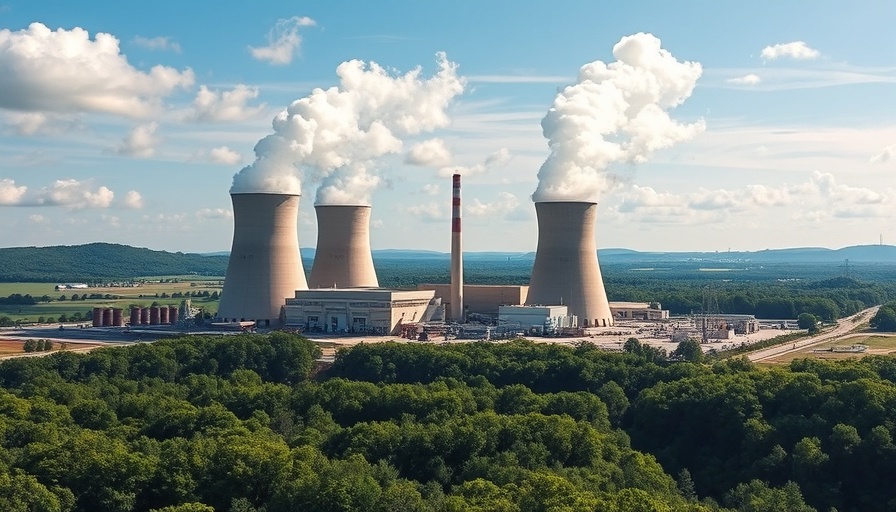
New Subsidies Signal Change at Drax Power Station
The United Kingdom has recently made a significant move by announcing a reduction in subsidies for the Drax power station, located near Selby in North Yorkshire. Once heralded as a key player in the country’s transition from coal, Drax has faced fierce criticism for its biomass sourcing practices. Michael Shanks, the UK energy minister, emphasized the need for responsible energy expenditure saying, “We believe that [the subsidies] simply did not deliver a good enough deal for bill payers and enabled Drax to make unacceptably large profits.” This shift highlights a growing awareness of sustainability and the ecological responsibility that comes with energy production.
Understanding Biomass Energy and Its Implications
Biomass energy has been lauded as a renewable alternative to fossil fuels, yet the implications of sourcing materials—such as wood pellets from North American forests—remain contentious. The environmental impacts of deforestation, carbon emissions from shipping, and the sustainability of extracting these resources bring forth critical questions. Drax's reliance on these imports raises concerns about the actual carbon footprint of what is often presented as 'clean energy'. As Shanks noted, burning biomass plays an important role in the UK’s energy mix, but we must scrutinize where these materials come from and their broader impacts.
The Call for Sustainable Practices in Energy Production
In a bold move, the UK government has mandated that Drax transition to using 100% sustainable biomass. Currently, only about 70% of the biomass used by the power station is sourced from sustainable practices. This change is necessary not only for the environment but also for the integrity of the UK’s energy policies. Ensuring that energy production is environmentally friendly can have profound effects—not just on ecosystems, but also on local communities that depend on these natural resources for their livelihoods.
The Bigger Picture: Our Energy Future
With the reduction in subsidies, there’s potential for reshaping the future of energy in the UK. It's a pivotal moment for policymakers, energy producers, and consumers to reconsider their energy consumption habits. As society pushes for greener alternatives, the demand for responsible sourcing practices will likely influence both consumer behavior and corporate accountability. The Drax case serves as a stark reminder of the complexities involved in transitioning to a sustainable energy model.
Reflection on Environmental Justice
The Drax controversy encapsulates a broader narrative about environmental justice. Communities across various landscapes—from Canadian forests to impoverished regions in the UK—are often impacted by energy production decisions. Understanding and advocating for equitable practices can lead to more sustainable outcomes that benefit not only the environment but also the people who interact with these ecosystems daily. As we reflect on the Drax situation, we are prompted to think about the kind of energy system we want to build—a system that protects our planet and prioritizes the well-being of all its inhabitants.
 Add Row
Add Row  Add
Add 



 Add Row
Add Row  Add
Add 

Write A Comment